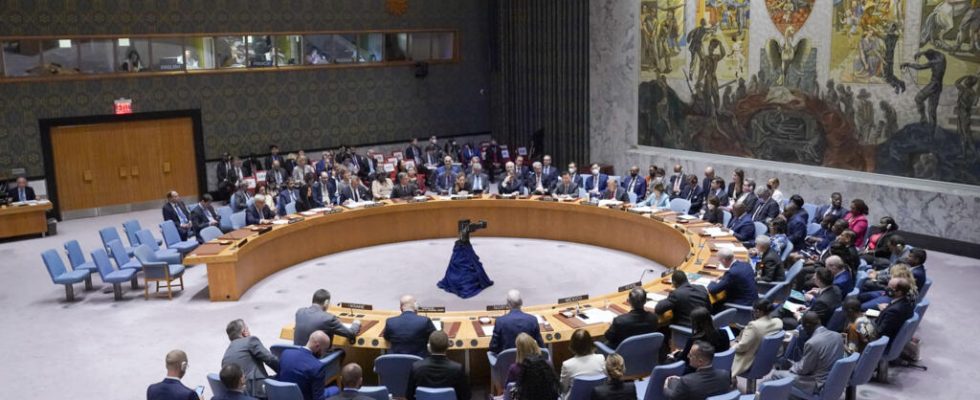Moscow and Bamako forced the hand of the United Nations (UN) Security Council and prevented the renewal of the sanctions regime in Mali. This regime was set up in 2017, at the request of Bamako, against leaders of armed groups, signatories of the 2015 peace agreement.
2 mins
The resolution which would extend for a year the sanctions regime put in place in 2017 against individuals endangering the 2015 peace agreement, and the mandate of the committee of experts responsible for monitoring them, garnered 13 votes in favour, one abstention (China) and one vote against (Russia).
Russia has decided to use its veto to respond to the request of the ruling junta, underlines our correspondent in New York, Carrie Nooten. It is a very symbolic vote, because it is certainly the last vote of the Security Council concerning Mali – the dissolution of Minusma having been decided, the country will indeed no longer be on the agenda. And this Russian veto, the first of its kind on the Malian file, is like a final snub from Moscow and its ally, Bamako, at the UN. Diplomats are not fooled; the sanctions regime was bound to be reduced in the medium term.
A report by the committee of experts pointing to the Malian army and Wagner
This veto is above all a direct reaction to the latest expert report released last week. The committee of experts denounces the violence against women, automatic and organized, by the Malian armed forces (Fama) and their ” foreign security partners – most certainly the Russian paramilitaries of the Wagner group.
He also notes a peace process “ paralyzed “, with groups that are arming themselves again, since the announcement of the withdrawal of Minusma. For some diplomats, especially, abolishing this committee of experts means eliminating the last remaining UN mechanism to monitor human rights violations in Mali.
Read alsoMali: bombings in Anefis, towards a resumption of the war between the State and the ex-rebels of the CMA?
